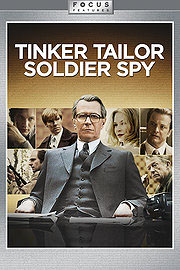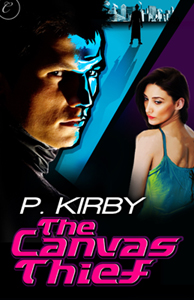 I expected to like this movie.
I expected to like this movie.
Instead Tinker Tailor Soldier Spy turned out to be a Black Swan, dripping with the slobber of critics who probably didn’t understand the convoluted mess either, but needed to flex their intellectual superiority complex.
I mean, it’s a spy movie set during the Cold War. Given the genre, it’s not unreasonable to expect a taut plotline and measure of suspense. It doesn’t have to be The Bourne Identity with a multitude of explosions and high-speed chases, but a decent thriller should convey the feeling that something is at stake, quite possibly the protagonist’s life.
Tinker Tailor Soldier Spy is a lugubrious crawl, like a Galapagos turtle trudging through tar while on lithium.
The movie begins with Control (John Hurt), the elder spy, assigning Jim Prideaux (Mark Strong), the operative, a mission in Hungary. Prideaux is supposed to connect with a possible defector. He meets his contact in a too-quaint-to-be-true village square: a young mother nurses her child on a nearby bench, a band plays in a nearby pub. Suspicious, Prideaux turns to leave, but is shot–presumably dead–by one of the bystanders. Yep. Setup.
Back in London, at “the Circus,” headquarters for all things espionage, Control, along with George Smiley, his right hand man, are confronted by several fellow spy folk (whose names I don’t remember). Control is summarily fired and he declares, “Smiley is coming with me.” Wow. Apparently, in England when you are “sacked,” you get to co-sack your best buddy because misery does love the company.
This followed by a lengthy segment where Smiley wanders about a dirt brown, ugly 70s version of London, doing nothing more exciting than getting himself a new pair of eyeglasses. We learn that he always shuts a tiny wooden shim in his front door, a clever bit of spy-stuff that lets him know if anyone else has opened the door. Pay attention to that because, that is the only cool espionage-y thing that happens in the entire movie. Somewhere along the line, Control dies. Oh, well. Eventually, after several minutes of no dialogue and movie credits, someone calls Smiley back in again and asks him to investigate the possibility of a mole at the Circus. Smiley agrees to investigate, but asks for helpers. One being Peter, Sherlock Holmes’s own Benedict Cumberbatch, but without any of the charm or panache. Because “dour” and “lifeless” were the only stage directions on this script. The other sidekick is on screen for about five minutes and I don’t think he does anything but drive the car.
You know how I’m always kvetching about characterization? “Build me some characters,” I say in Sauron voice. Character development in Tinker Tailor Soldier Spy amounted to the following: We learn that Smiley’s wife is named Anne and that she is playing naked spy games with Smiley’s fellow operative, Bill Haydon (Colin Firth). This makes Smiley…sad? I dunno. The faces on Mount Rushmore do more emoting than Oldman in this role.
For what it’s worth I love Gary Oldman. He’s a brilliant actor. Heck, he made the otherwise awful Dracula worth watching. Critics call his performance in this movie “restrained.” I call it sleeping-with-your-eyes-open. The movie poster says it all. He stares out at the viewer, his eyes more lifeless than an exhibit at Madame Tussaud’s wax museum.
Character backstory numero dos comes courtesy of Smiley’s admonition to Peter that he cut all ties because things are going to get dangerous. Peter goes home, where he gives his male live-in-lover a meaningful look. Cut scene and lover is walking out the door, suitcase in hand; before he leaves he chucks the apartment keys on the table before Peter. Peter sobs.
That’s what we know about the main protagonists. Smiley is married to a philandering wife. Peter is gay. Seriously? This is what makes the critics wet their panties? I’ve seen deeper character development in video games. The majority of the cast’s performance were so unremarkable that I started referring to them by nicknames like CombOver One and CombOver Two. Every character in the movie is miserable. The tone feels like a very long advert for an anti-depression drug.
Chunks of the story are told in flashbacks, the transitions between present and past being too seamless; it’s hard to tell where you are in time. It’s hard to care since, despite Smiley’s warning to Peter, above, there’s never any sense of danger or menace. There are just a few deaths in the movie; most in the beginning scene, one at the end. All are utterly bloodless, too tidy to illicit any kind of emotional reaction.
I’m sure fans of this boring flick will argue that it’s tedious pacing is realistic: true life spies don’t barge about blowing shit up. Maybe. But that’s not why we watch movies. We watch movies to be entertained. Good storytelling always engages some degree of hyperbole. Larger-than-life heroes have been around as long as there have been stories.
This is the kind of movie that makes some people say, “They don’t make movies like that anymore.” To which I respond, “And it’s a damn good thing–Ugh!”
Totally not worth your time, unless you’re suffering from persistent insomnia.


